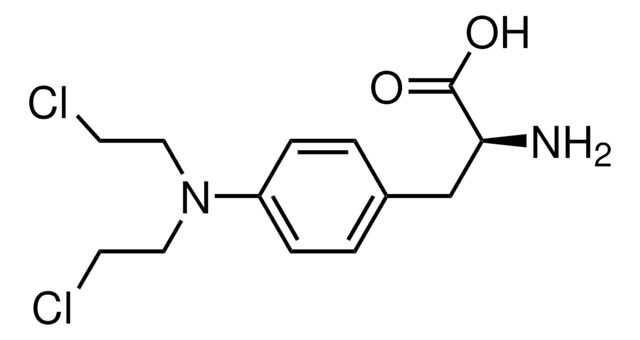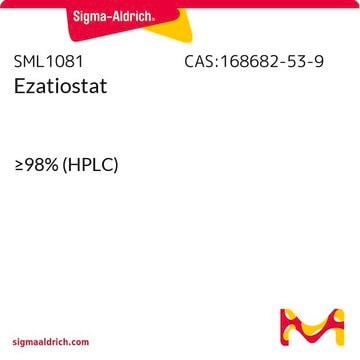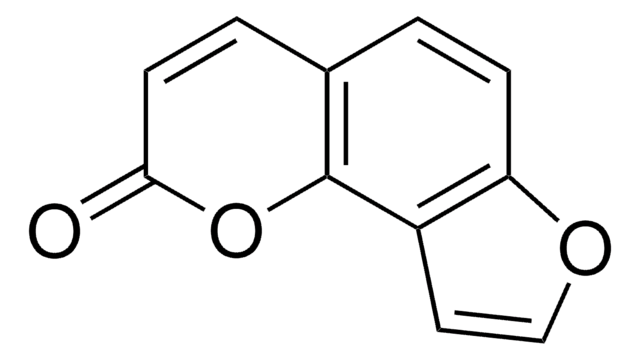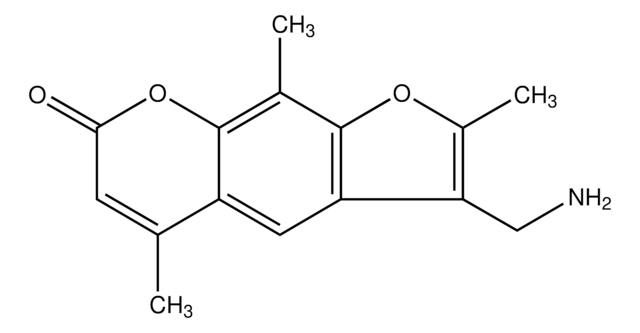C0400
Carmustine
≥98% (TLC), oily liquid to amorphous solid, DNA alkylating agent
Synonym(s):
1,3-Bis(2-chloroethyl)-1-nitrosourea, BCNU
Select a Size
Select a Size
About This Item
Recommended Products
Product Name
Carmustine, ≥98%
Quality Level
Assay
≥98%
form
(Oily liquid to amorphous solid)
mp
30 °C (lit.)
solubility
ethanol: 19.60-20.40 mg/mL, clear, pale yellow to yellow
originator
Bristol-Myers Squibb
storage temp.
−20°C
SMILES string
ClCCNC(=O)N(CCCl)N=O
InChI
1S/C5H9Cl2N3O2/c6-1-3-8-5(11)10(9-12)4-2-7/h1-4H2,(H,8,11)
InChI key
DLGOEMSEDOSKAD-UHFFFAOYSA-N
Gene Information
human ... GSR(2936)
Looking for similar products? Visit Product Comparison Guide
General description
Application
Biochem/physiol Actions
Features and Benefits
Signal Word
Danger
Hazard Statements
Precautionary Statements
Hazard Classifications
Acute Tox. 2 Oral - Carc. 1B - Repr. 1B
Storage Class Code
6.1A - Combustible acute toxic Cat. 1 and 2 / very toxic hazardous materials
WGK
WGK 3
Flash Point(F)
Not applicable
Flash Point(C)
Not applicable
Personal Protective Equipment
Regulatory Listings
Regulatory Listings are mainly provided for chemical products. Only limited information can be provided here for non-chemical products. No entry means none of the components are listed. It is the user’s obligation to ensure the safe and legal use of the product.
ISHL Indicated Name
Substances Subject to be Indicated Names
ISHL Notified Names
Substances Subject to be Notified Names
JAN Code
C0400-BULK:
C0400-100MG:
C0400-VAR:
C0400-25MG:
C0400-25MG-PW:
C0400-100MG-PW:
Choose from one of the most recent versions:
Certificates of Analysis (COA)
Don't see the Right Version?
If you require a particular version, you can look up a specific certificate by the Lot or Batch number.
Already Own This Product?
Find documentation for the products that you have recently purchased in the Document Library.
Customers Also Viewed
Articles
DNA damage and repair mechanism is vital for maintaining DNA integrity. Damage to cellular DNA is involved in mutagenesis, the development of cancer among others.
Cell cycle phases (G1, S, G2, M) regulate cell growth, DNA replication, and division in proliferating cells.
Apoptosis regulation involves multiple pathways and molecules for cellular homeostasis.
Active Filters
Our team of scientists has experience in all areas of research including Life Science, Material Science, Chemical Synthesis, Chromatography, Analytical and many others.
Contact Technical Service
















